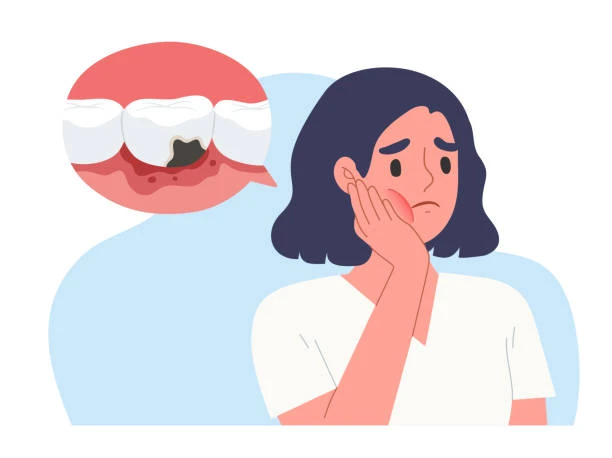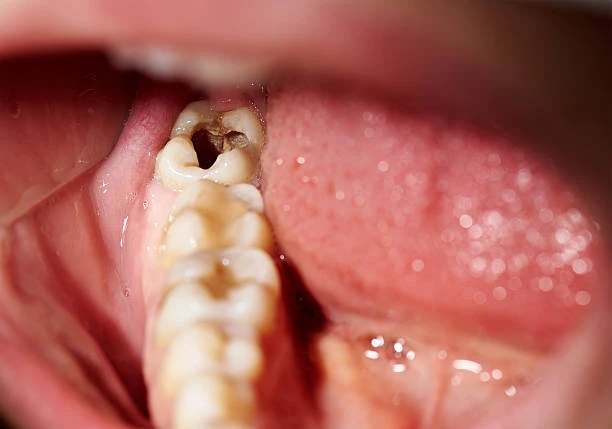Dental health is an essential part of overall health, and cavities are one of the most common dental problems. If you’re someone who is concerned about your oral health, you may have wondered how long it takes for a cavity to form.
The truth is, there’s no one-size-fits-all answer to this question. The time it takes for a cavity to form can vary greatly depending on a variety of factors, including your diet, oral hygiene habits, genetics, and more.
However, understanding the process of cavity formation and the warning signs to look out for can help you catch dental problems early and prevent more serious issues down the line.
In this article, we’ll explore the factors that influence cavity formation and provide tips on how to maintain good oral hygiene to keep your teeth healthy and cavity-free.
What is Dental Health?
Dental health refers to the overall health of your mouth, including your teeth, gums, and tongue. Good dental health is essential for maintaining overall health and well-being.
Poor dental health can lead to a variety of problems, including cavities, gum disease, and tooth loss. It can also affect your eating and speaking ability and even impact your self-esteem and confidence.
Maintaining good dental health involves regular brushing and flossing and regular check-ups with a dentist. During these check-ups, your dentist will examine your teeth and gums for signs of decay or other issues and will provide treatment as necessary.
They will also clean your teeth to remove any plaque or tartar buildup that may have occurred since your last visit.
What is a Cavity?

A cavity is a hole in your tooth that is caused by decay. Decay occurs when bacteria in your mouth feed on the sugars and starches in your food, producing acids that can wear away at the enamel on your teeth. Over time, this can lead to the formation of a cavity.
If left untreated, cavities can lead to more serious dental problems, including tooth loss and gum disease. That’s why catching cavities early and getting them treated as soon as possible is important.
Stages of Cavity Formation

Cavity formation occurs in several stages, each of which can take varying amounts of time depending on a variety of factors. The stages of cavity formation are:
Plaque Buildup
The first stage of cavity formation is the buildup of plaque on your teeth. Plaque is a sticky film that forms on your teeth when bacteria in your mouth combine with saliva and food particles.
Plaque can be removed by regular brushing and flossing, but if it is not removed regularly, it can harden into tartar, which is much harder to remove.
Enamel Demineralization
Once plaque has built up on your teeth, the acids produced by the bacteria in your mouth can begin to wear away at the enamel on your teeth. This is known as demineralization.
If caught early, demineralization can be reversed through the use of fluoride treatments or changes to your diet and oral hygiene habits.
Dentin Decay
If demineralization is not caught early, it can progress to the next cavity formation stage, dentin decay.
Dentin is the layer of tissue beneath the enamel that makes up the bulk of your tooth. When the acids produced by bacteria in your mouth reach this layer, they can begin to break down the tissue, forming a cavity.
Infection of the Pulp
The final stage of cavity formation occurs when the infection reaches the pulp of your tooth. The pulp is the innermost part of your tooth, containing nerves and blood vessels.
When the pulp becomes infected, it can become very painful and may require more extensive treatment, such as a root canal.
Factors Influencing the Speed of Cavity Formation
The speed at which cavities form can vary greatly depending on a variety of factors. Some of the most important factors that influence cavity formation include:
Personal Oral Hygiene
Maintaining good oral hygiene is one of the most important factors in preventing cavities. This includes brushing your teeth twice a day with fluoride toothpaste, flossing regularly, and visiting your dentist for check-ups and cleanings.
If you neglect your oral hygiene, plaque can build up on your teeth, leading to the formation of cavities.
Dietary Habits
Dietary habits can also play a role in cavity formation. Eating a lot of sugary or starchy foods can increase the amount of bacteria in your mouth, leading to more plaque buildup and an increased risk of cavities.
Eating a healthy diet that is low in sugar and starch can help reduce your risk of cavities.
Fluoride Usage
Fluoride is a mineral that can help strengthen your teeth and prevent cavities. Fluoride is often added to toothpaste and mouthwash and may also be present in your drinking water.
Using fluoride products can help reduce your risk of cavities.
Genetics and Underlying Health Conditions
Some people may be more prone to cavities due to genetics or underlying health conditions. For example, people with dry mouth may be more susceptible to cavities because they do not produce enough saliva to wash away bacteria.
People with weakened immune systems may also be more susceptible to cavities because their bodies are less able to fight off infections.
Prevention and Treatment of Cavities
Preventing cavities is much easier than treating them once they have formed. There are several steps you can take to prevent cavities, including:
Measures to Prevent Cavity Formation
- Brush your teeth twice a day with fluoride toothpaste.
- Floss daily to remove plaque and food particles from between your teeth.
- Use mouthwash to kill bacteria and freshen your breath.
- Limit your consumption of sugary and starchy foods.
- Drink plenty of water to help wash away bacteria.
- Visit your dentist regularly for checkups and cleanings.
Long-Term Benefits of Preventive Care
Preventive care is important not just for preventing cavities but also for maintaining good overall dental health. Regular check-ups and cleanings can help catch dental problems early, when they are easier and less expensive to treat.
They can also help you maintain good oral hygiene habits, which can prevent a variety of dental problems down the line.
Treatment Options for Cavities
If you do develop a cavity, there are several treatment options available.
The most common treatment for cavities is a filling, which involves removing the decayed tissue and filling the hole with dental material. A crown or root canal may be necessary to save the tooth in more severe cases.
Treat and Prevent Cavities with Supremia Dentistry
At Supremia Dentistry, we are committed to helping our patients achieve and maintain good dental health.
Our team of experienced dentists and hygienists can provide a variety of preventive and restorative services, including regular check-ups and cleanings, fillings, crowns, and more. We also offer cosmetic dentistry services to help you achieve the smile of your dreams.
Whether you’re looking to prevent cavities or treat existing dental problems, Supremia Dentistry can help.
Contact us today to schedule an appointment and start your journey to better dental health.
Conclusion

Cavities are a common dental problem that can be caused by a variety of factors, including poor oral hygiene, dietary habits, and genetics.
Understanding the process of cavity formation and the factors that influence it can help you prevent cavities before they form and catch them early if they do develop.
By maintaining good oral hygiene habits, eating a healthy diet, and visiting your dentist regularly, you can help keep your teeth healthy and cavity-free for years to come.

